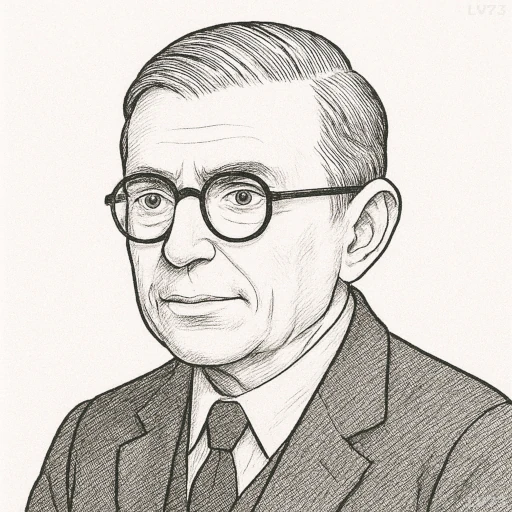“Three o’clock is always too late or too early for anything you want to do.”

- June 21, 1905 – April 15, 1980
- Born in France
- Philosopher, novelist, playwright
table of contents
Quote
“Three o’clock is always too late or too early for anything you want to do.”
Explanation
In this quote, Sartre reflects on the subjective experience of time and the frustration that arises from feeling disconnected or misaligned with one’s desires or actions. The specific time, “three o’clock,” is symbolic of those moments when the day feels in a state of transition, neither fully in the past nor the future. The feeling of time being “too late or too early” captures the existential tension that many people experience in their daily lives—when they feel unable to act, either because it’s too late to start something, or too early to make meaningful progress. Sartre is commenting on the timeless nature of procrastination, frustration, and the difficulty in finding the right moment to act. In existential terms, the present moment often feels either insufficient or overwhelming, leading to a sense of inaction or regret.
This notion ties into Sartre’s broader existential themes of freedom and responsibility. The perpetual struggle to take action is part of the human condition—no matter the time of day, there’s always something that seems to stand in the way of authentic action. Sartre’s philosophy suggests that inaction, even when we are fully aware of our desires or the need to act, often results from an avoidance of responsibility or fear of confronting the unknown. The quote reflects this existential paradox where the timing of one’s actions never seems right, illustrating how self-doubt or indecision can paralyze individuals from pursuing what they truly want.
In modern contexts, this quote resonates with the common feeling of being caught in the rush of everyday life, often experiencing moments of procrastination or self-doubt. With busy schedules and constant pressure, many people find themselves facing the sense that it’s always “too late” to make a significant change or “too early” to start something new. Sartre’s insight encourages us to confront the illusion of perfect timing and recognize that true action and authentic living happen when we decide to embrace the present moment instead of waiting for ideal circumstances that never come. The true challenge is in overcoming the hesitation and recognizing that the right moment to act is often now, regardless of the time.
Would you like to share your impressions or related stories about this quote in the comments section?


